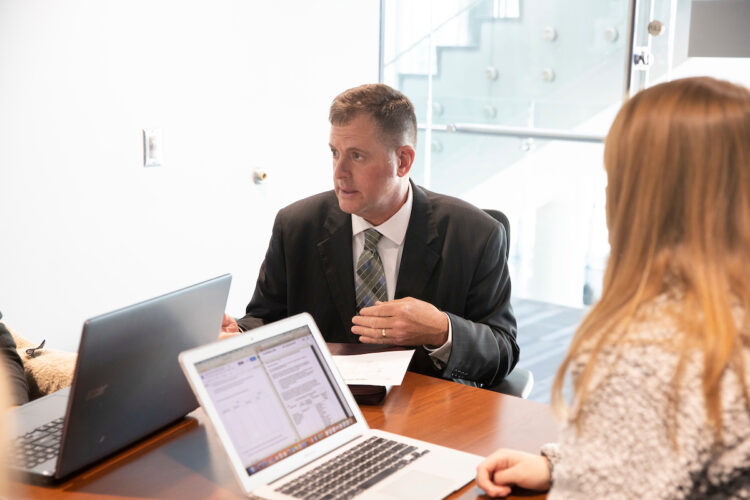
The U.S. Bureau of Labor statistics reported a record-breaking average of 3.98 million resignations per month in 2021.
The trend, denoted the Great Resignation or the Big Quit, marks a shift in how we view work and what we value in a job, explains Missouri State University professor of management, Dr. Wes Scroggins.
“I don’t think this Great Resignation will be going away anytime soon,” Scroggins said. “We’ve had record numbers of people quitting. Employers will find this to be a challenge they will be faced with for a long time.”
The workers moving on
Workers from all generations and professions have contributed to the Great Resignation.
The demographics are all over the board, explains Scroggins. But there are trends, including millennials seeking greener pastures and baby boomers deciding to retire early.
Millennials are at the mid-point in their careers, and many face mobility issues. It’s also a time in their careers where they have a lot of opportunities available to them, so they can find a better fit.
“The younger generations seem to have higher expectations for what they want from a job,” Scroggins said. “If these expectations aren’t met, they can become unhappy very quickly.”
But they aren’t alone.
Many baby boomers are choosing to retire early, keeping with the trend dubbed the Great Retirement.
Finding the right fit
Scroggins believes employers will need to remain flexible and offer competitive compensation to attract new employees and keep their existing employees.
“Make sure the people you are hiring are a good fit with the culture of your organization,” Scroggins said. “If their values and goals match with your organization, they will be more likely to stay.”
Job seekers should also assess if an organization is a good fit for their needs before accepting an interview or job offer.
“Use your network,” Scroggins said. “The best way to learn more about an organization is to talk to people who are already working there.”
The changing nature of work
With the move to remote work, increased sanitation measures, school closures and more, COVID-19 has changed the nature of work.
While many have enjoyed the flexibility that comes with working from home, many have also reported burnout due to the isolation caused by COVID-19. The needs of remote workers are often different.
“The downside of remote work is that many feel a greater sense of isolation,” Scroggins said.
“Managers of remote workers need to take additional steps to make contact with their workers, keep people connected and ensure they have the resources they need to succeed.”
Good news for job seekers and recent graduates
While this may be a strange time to enter the workforce, it’s also a favorable time for recent graduates.
For job hunters, Scroggins recommends:
- Know what you want from a job. Assess your expectations for the nature of the work, autonomy you desire and the values of the organization.
- Do your homework and make sure the organization and the role are a good fit for you.
- When you find the right fit, move forward and show hiring managers why you are a good fit as well.
“The bargaining power is with the applicant,” Scroggins said. “There is a lot of demand for workers. And the opportunities, even for internships, are everywhere.”
